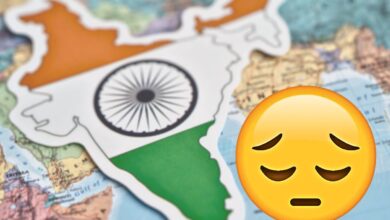Customer Service World Cup 2018: Which countries have the happiest customers
India- July 5, 2018: This year’s World Cup is in full swing. While teams from across the globe compete on the field in Moscow, we explored how they stack up based on a key indicator of good customer service: customer satisfaction.

With data from the Zendesk Benchmark, our index of nearly 50,000 companies using Zendesk around the world, we looked at which countries lead the way when it comes to happy customers. We examined the factors driving customer satisfaction globally, how our country CSAT rankings have changed since the last World Cup in 2014, and which country in the final stage of this year’s tournament would win our Customer Service World Cup.
Some of the findings may surprise you. For instance, we saw a global dip in CSAT. Over the past four years, it has decreased 4 percent, from 92.9 percent in 2014 to 89.5 percent in 2018.
There’s a complex story behind this decline. Companies have struggled to grow their help desks to keep up with support requests from customers. And in the past three years, average daily tickets have increased by 51 percent, outpacing growth in average team size, which is up only 37 percent. Pair rising inquiries from customers with higher customer expectations, and the decrease in customer satisfaction worldwide starts to make sense.
How support teams around the world stack up
We ranked countries according to the CSAT earned by support teams using Zendesk and looked at how these country rankings have evolved since the 2014 World Cup.
New Zealand leads the pack when it comes to CSAT for both 2014 and 2018, with a CSAT of 95.7 percent in 2018. That’s more than 6 percent above the median CSAT of the countries in our sample. New Zealand is home to support teams like those at LJ Hooker and Wintec, both of which boast CSATs of 97 percent and above thanks to a focus on proactively investing in customer support.

Australia, Belgium, Canada, the United States, and the United Kingdom round out the list of top-scoring countries when it comes to CSAT across both World Cup years.
Singapore ranks at the bottom for 2018 with a CSAT of 85.4 percent. Alongside Colombia, Indonesia, India, the Philippines, and Turkey, it makes the list of countries at the bottom of our rankings for both years.
Countries with the lowest CSAT tend to see the highest number of inquiries from customers. Singapore, Indonesia, Chile, and the Philippines ranked highest when it comes to daily ticket volume in 2018. India, in particular, stands out as the country with the most tickets, with more than twice the volume of third-place Indonesia.
This year we saw some newcomers enter our top 10. These are Panama, Finland, Latvia, and Denmark. New additions Finland and Denmark — as well as past and current front-runners New Zealand, Australia, Canada, Norway, and Switzerland — belong to recent lists of happiest countries. This implies a connection between countrywide happiness and CSAT, as happier people tend to report that they are more satisfied with customer service interactions.

Fig. 1: Median CSAT (2018) vs World Happiness score (2015-17)
– each mark represents a country
Why some countries have happier customers
Some variation is likely due to cultural differences, since customers have varying expectations based on norms across countries and regions. But one differentiator was clear: Higher CSAT is linked to a willingness to adopt an omnichannel solution, an approach we’ve shown means customers spend less time waiting for responses, resolve their issues faster, and are less likely to require follow-ups.
Our Customer Service World Cup front-runners are more likely to offer omnichannel customer support, with nearly 6 percent offering an integrated omnichannel solution combining email, webform, phone, chat, and self-service. That’s higher than the 4 percent of the countries ranked in the bottom 10 that take an omnichannel approach.
Interestingly, countries at the top of our CSAT rankings are more likely to have a higher share of B2B companies, with 42 percent of companies in that group serving a target audience of other businesses. Countries at the bottom of our rankings tend to have B2C companies make up the majority, since nearly 60 percent of companies in those countries are B2C.
This speaks to a fundamental challenge for B2C companies: the pressure to keep up with rising customer expectations and the challenges of seeing a higher ticket volume than other types of companies and a more diverse customer base.
The winner is…
Every four years the world’s 32 best football nations meet at the grand stage of the FIFA World Cup finals. After an initial round of group stage games, 16 teams get to the knockout stage of the competition.
What if the only thing that mattered were a country’s CSAT? Our world at Zendesk revolves around customer satisfaction, so that’s how we determined the final winner.
Our Customer Service World Cup winner: England. Home to more than 4000 Zendesk Benchmark companies, England boasts the happiest customers of the final teams in the World Cup and has fielded more than 2.3 million customer satisfaction responses in the past year.
Now all that’s left for the English team is replicate that success in Moscow. And with the help of Harry Kane, their captain and the leading scorer through the group stages, it may be coming home this year.

Methodology
We computed the yearly median CSAT from all Benchmark opt-in customers within a country. The following filters were applied to the dataset:
- Minimum 50 CSAT survey responses in 2014 and in 2018
- Minimum 5 accounts per country in 2014 and 10 in 2018
- Sample size:
- 57 countries
- 20,605 Benchmark accounts
- 53,211,071 CSAT responses
For more insights on customer service best practices, head to the Zendesk Benchmark, and current Zendesk customers can opt into the Benchmark to start seeing how they stack up against the competition.




